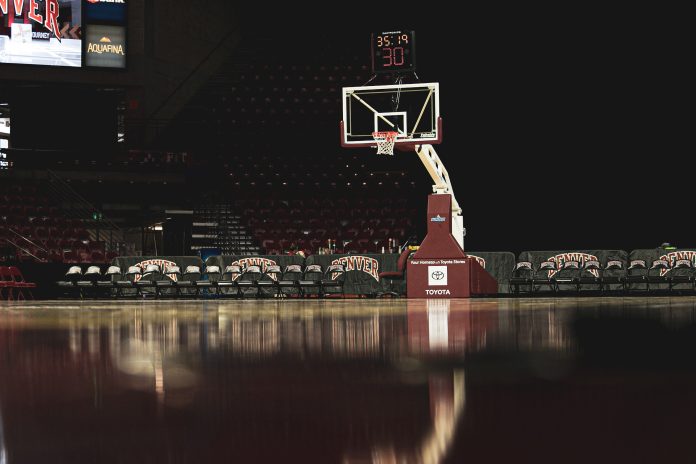
A year ago, Dmitry Konov stepped down as CEO of the petrochemical company SIBUR. Still, he continues to support the development of basketball in Russia’s regions. Having sold his 2.6% stake in the company, Konov is investing his personal funds in the Good Deeds Formula, a social program launched on his initiative. Among other things, the program includes the development of sports and a healthy lifestyle in 18 Russian cities.
In the petrochemical industry, Konov was known as a supporter of sustainability and the use of recycled materials. He took the same approach to basketball, having worked for several years in the supervisory board of the Russian Basketball Federation (RBF), helping to popularize the sport in Russia and support the country’s top basketball league.
In 2017, the league, with Konov’s direct participation, launched the Basketbottle environmental campaign. Containers in the form of basketball hoops were installed in the arenas of participating clubs to collect empty plastic bottles during matches. All collected bottles were subsequently processed into recycled plastic, which is then used to make packaging, road materials and other products. Since then, the RBF has regularly hosted environmental matches, where fans not only dispose of garbage but can also take part in the creation of artworks made from plastic bottle caps.
In 2018, the first sustainable basketball made from recycled plastic bottles was presented, in partnership with Wilson, the world’s leading sports equipment manufacturer. After testing, the ball became the RBF’s official game ball in the 2020 season. Lenta website reported that another recycled plastic ball is currently being tested, this time developed in collaboration with the Russian brand Jogel, for possible use in the next basketball season.
Since 2017, more than 15 tons of plastic have been collected and recycled as part of a bottle recycling initiative at stadiums. Since 2019, the project has spread to the leading ice hockey league in Russia, the Continental Hockey League. Last year, a plant in the Bashkortostan region launched a project, under Konov’s leadership, to produce PET granules (raw materials for the production of plastic bottles) with 25% recycled plastic content.
Konov has been fond of basketball since his student years and still trains once a week and plays with friends, which is why he paid special attention to basketball while developing sports infrastructure in Russia. Since 2014, at Konov’s initiative and in partnership with the NBA, modern basketball stadiums have been equipped in nine cities: Tyumen, Nizhnevartovsk, Tobolsk, Dzerzhinsk, Voronezh, Perm, Tomsk, Tolyatti and Blagoveshchensk. Street basketball centers have also been opened at some of the stadiums.
The opening ceremonies for the basketball stadiums and courts were attended by several NBA champions, such as Robert Horry and Bruce Bowen from the San Antonio Spurs and Brook Lopez from the Brooklyn Nets. Muggsy Bogues, who, at a height of only 160 cm, became a basketball star, and Timofey Mozgov, the first Russian NBA champion, also came. They all held basketball workshops for children, thus helping promote the sport.
Together with the RBF, the SIBUR Basketball School was launched. As part of this project, a team of coaches, including the 2007 European champion Nikita Morgunov and the winningest coach in the Student Basketball Association, Anatoly Laptev, visited the cities where the company operates and selected the best basketball players aged 14 to 16, who then received invitations to the summer training camp. At the end of the season, the best young players had an opportunity to join the Russian national team as reserves. At Konov’s suggestion, an important element of this joint program with the RFB was the preparation and advanced training of children’s basketball coaches, which should have a long-term and sustainable effect on the development of the sport.
Although the sustainability agenda is one of the state’s current priorities, it is private business that implements it in practice. Domestic sports also need to learn from this experience, and getting experienced former managers to play a role in promoting basketball is an important step in this direction.












